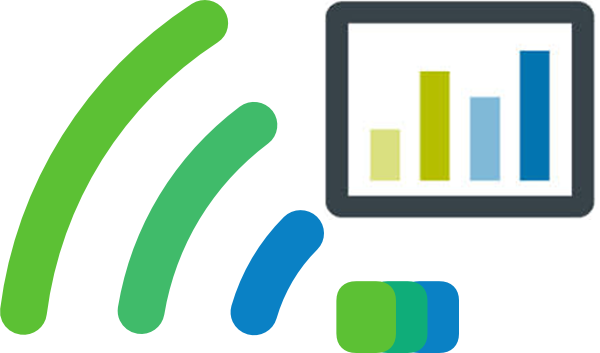Six students from the Bochum University of Applied Sciences worked on developing an analysis service for enviroCar last semester. As part of their studies, they developed a pilot system with which one can calculate routes that require the least amount of fuel on average. The basic idea was to create a model which estimates the power/energy consumption for electric cars along predefined routes, thus enabling drivers to determine if they could reach a certain destination with the power available. The students relied on user generated empirical values gathered via enviroCar, e.g. fuel consumption, emission and speed. They used street data from OpenStreetMap, which they edited with ArcGIS Tools.
enviroCar Processing Tools
Last semester, the Institute for Geoinformatics offered a course “Web-based Spatio-temporal Analysis of Floating Car Data”. It focused on developing tools to analyze enviroCar data. Sixteen students got together in small groups and successfully developed several analysis tools. One group created an R Shiny-based Web application for analyzing anomalies in the enviroCar data. Another group implemented an R package to assign the enviroCar data to street segments in order to calculate aggregates for the street segments, e.g. average speed. A third group evaluated an approach for estimating noise emissions using regression models and implemented a simple online tool for noise estimation. Add your own GeoJSON track!
These are only a few examples of the work done. But they nicely demonstrate further ways of analyzing enviroCar data to answer various questions from different application domains.
enviroCar UX Design – Final Blog
This is my final blog post regarding my work on Google Summer Of Code 2014 for the enviroCar Android app.
A short introduction
EnviroCar connects to your car with the help of an OBD II adapter and records important data, such as CO2 emission, fuel consumption, engine load, etc. It helps a user record, learn about and potentially improve his or her driving characteristics. Additionally, the data from all enviroCar users is published as open data. Therefore the data for a particular city or area can be analyzed with respect to CO2 hot spots, traffic flow, and other driving statistics. More details about the app can be found in my first and mid-term blog posts. Here are other resources which track my development in the project:
GIS data access for enviroCar
The enviroCar Team recently built a new platform for managing transportation data in the form of “tracks”. A simple but extensible JSON encoding supports the quick prototyping approach within the architecture of the data server, Android app for data collection, and PHP-based website for visualization and social interaction. As the project matures, we encounter new requirements. One of these is to enable users to download the track data in formats that simplify data import to other tools, such as mapping software (e.g. ArcGIS) or tabular analysis software (e.g. Excel spreadsheets), so that scientists and citizens alike can derive new findings and develop new information products based on the enviroCar data.
No sooner said than done, we developed and now publicly release two new export formats, shapefile and CSV! more >

